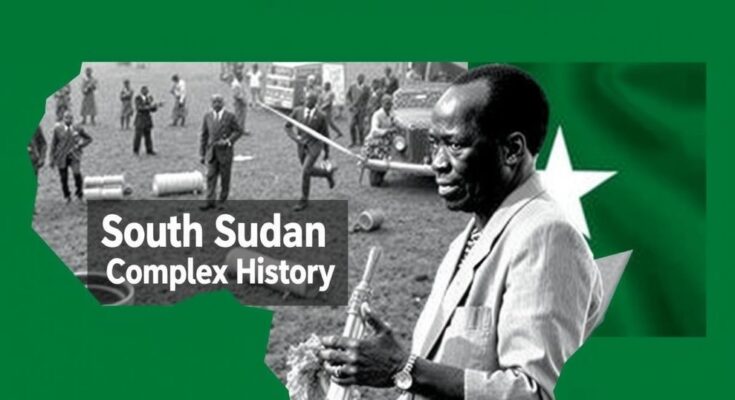Simon Chop’s new book “The Red Horse of the Apocalypse: The Spirit of Violence, Revenge, and Conquest” explores South Sudan’s violent history, drawing on his personal refugee experiences. The book addresses themes of tribalism and betrayal alongside South Sudan’s journey from independence to civil conflict, emphasizing the human toll of political ambition.
Simon Chop, in his compelling new book “The Red Horse of the Apocalypse: The Spirit of Violence, Revenge, and Conquest,” critically examines the violent history of South Sudan. Drawing from his experiences as a refugee and his academic background in Social Justice and International Relations, Chop explores the cyclical nature of violence, tribalism, and revenge that has shaped the nation since its struggle for independence. Through a narrative that centers on the symbolism of the ‘red horse’ representing bloodshed, he vividly recounts the stories of marginalised communities, particularly the Nuer people, highlighting the profound human cost of political conflict.
Released on November 25, 2024, this non-fiction work exposes the tragic realities behind South Sudan’s creation and the subsequent internal strife that has plagued its fragile peace. Chop’s journey from a rural village in South Sudan to refugee camps in Ethiopia and Kenya, eventually leading to his settlement in Australia, provides a unique perspective that enriches this historical account.
Chop’s narrative emphasizes that while independence sparked initial hope, longstanding divisions quickly led to devastating consequences. Thus, “The Red Horse of the Apocalypse” serves as a stark reminder of the ongoing challenges faced by South Sudan—a nation continually marred by violence and the quest for revenge.
This article discusses the release of Simon Chop’s new book, which delves into the complex history of South Sudan. The focus of the book is on the themes of violence and tribalism, drawing connections between the nation’s quest for independence and the subsequent civil conflicts. Chop’s personal background as a refugee and his academic qualifications offer a valuable lens through which he interprets these historical events, which contribute to understanding the ongoing struggles within South Sudan.
In conclusion, Simon Chop’s “The Red Horse of the Apocalypse” presents a crucial exploration of South Sudan’s tumultuous history characterized by violence, revenge, and sociopolitical struggles. His unique perspective as a refugee enriches the narrative, offering insights into the human costs of conflict. As the nation continues to grapple with its dark past, Chop’s work serves as an important reminder of the enduring impact of these issues on the lives of its people.
Original Source: baytobaynews.com




